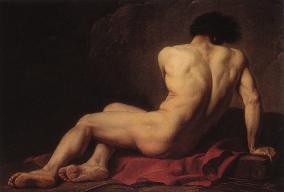Renaissance | modern consumers | air pollution | lesson | equity in descent | railways | Medieval | Morph
Media examined
Medieval stained glass windows: a way to reach the unschooled masses?
Creation and the Tower of Babel create imagery of two biblical stories.
"The medium is the message."
Marshal McLuhan on Understanding Media; ABC Australian Broadcasting Corporation, 27 June 1979, interview. Media as a service that structures "awareness."
Renaissance painting and the imagery of Christian mythology
Picturing how humanity is made in the image of God.
Vitruvius, ancient advice for builders.

Television
“We do not doubt the reality of what we see on television.”
p. 79.
“the
background radiation of the social and intellectual universe.” No longer strange
“the
world as given to us through television seems natural, and not bizarre.”
There is a need to "Make the epistemology of television visible again.”
p. 80.
Pp. 79-80.
"These quixotic uses of
television to ridicule the hope harbored by some that television can be used to
support the literate tradition.”
Exactly what M. McLuhan called “rear-view mirror” thinking?
By applying today, past ideas in an effort to fit (shoe-horn in) radically disruptive technical advances that actually cannot incorporate older ways of doing things.
p. 83.
Day
After (a prime-time television show on an imagined nuclear –war– holocaust) discourse:
“Our culture has moved toward a new way of conducting its business – even important business. Experts must answer not to the rigors of their disciplines, but to the bar of “good showmanship.”
“There
is no business, but show business.”
p. 98.
Neil Postman,
![]()
"If the public relations specialists of the oil and coal industries are criminals against humanity, the U.S. press has basically played the role of unwitting accomplice by consistently minimizing this story, if not burying it from the public view altogether."
Ross Gelbspan, Boiling Point, p. 67.
Railway advertisement from the 19th century.
Classical portrayal of our human form.
